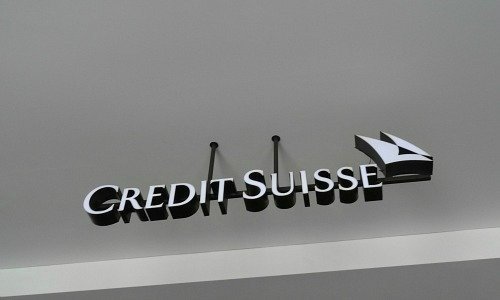Credit Suisse: Shafir and Jain's Legacy
Credit Suisse’s balance sheet holds hefty goodwill positions – including in asset management. How much value the assets underlying these positions still hold is questionable.
Observers of Credit Suisse often mention its goodwill position, or those which could risk being revalued or written down. The risk-weighted activities which Credit Suisse is ramping down are not the only type of positions the bank’s balance sheet carries.
The bank carried substantial goodwill on its acquisition of Donaldson, Lufkin & Jenrette (DLJ) 16 years ago, until writing down 3.8 billion Swiss francs of it at the end of last year.
1.5 billion Francs in Asset Management
Credit Suisse still carries roughly 2.6 billion francs in goodwill stemming from the DLJ acquisition, according to its balance sheet. Taking the share price into consideration, it appears clear that investors are expecting another hefty write-down.
The stock is valued at half its book value following a dramatic share price slide under 10 francs. This is a sign that investors don’t believe the company is worth the value on its books.
Of particular note is that a substantial part – 1.5 billion francs – of Credit Suisse’s overall goodwill of 4.8 billion is in its asset management division.
Hedge Fund Focus
That is largely down to Credit Suisse’s 2007 acquisition of Hedging Griffo. The Brazilian subsidiary is the core of Credit Suisse’s boutique approach to asset management, after the Swiss bank sold its bread-and-butter operations in the division to Scotland’s Aberdeen’s Asset Management in 2009.
Credit Suisse has concentrated instead on «interesting» alternative investments. Hedge funds generally contribute higher fees and clients receive a product which typically promises returns even in a turbulent market environment.
Shafir Drove Strategy
Rob Shafir is credited with the Hedging Griffo strategy. A veteran investment banker who joined Credit Suisse from Lehman Brothers in 2007, Shafir was ultimately responsible for the acquisition as then-CEO of Americas and of asset management.
Credit Suisse paid an initial 420 million francs for half of the Brazilian asset management that same year. The takeover of the remaining 50 percent happened in 2012. By then, Shafir had handed over responsibility for global asset management to Robert «Bob» Jain, also an investment banker.
Jain. a New Yorker, led Credit Suisse’s equities business, was a proprietary trader and previously worked as a derivatives specialist at UBS and Barclays.
Number of Deals
Shafir and Jain drove the asset management’s hedge fund strategy, acquiring York Capital Management in 2010. York was a hedge fund run by former executives of DLJ, the investment bank Credit Suisse acquired in 2000.
Credit Suisse initially paid $425 million for a minority share in York, and agreed to further payments depending on the deal’s development. The Swiss bank bought Dutch bank Fortis’ prime services – business with hedge funds – in the same year.
Expectations Met?
The value of these acquisitions is questionable: bank observers claim that the prolific acquiring under Shafir and Jain haven’t fulfilled Credit Suisse’s expectations. To be sure, the bank doesn’t split out results from the various acquisitions. But some experts expect Credit Suisse to have to write down some or all of the 1.5 billion franc goodwill in asset management.
Credit Suisse didn’t comment to finews.ch on potential writedowns. Shafir left Credit Suisse last month, while Jain was poached by hedge fund Millennium, run by billionaire Izzy Englander.
Altered Circumstances
Goodwill rules are clear: under U.S. GAAP accounting standards, Credit Suisse is required to calculate the fair value of its assets in case altered circumstances or events lead to a reduction. It is exactly these changed circumstances that prompted Credit Suisse’s fourth-quarter write-down of its DLJ goodwill.
Asset management – now housed within Credit Suisse’s international wealth management division following an October restructuring under CEO Tidjane Thiam – was spared write-downs.
Poor Brazilian Business
It is no secret that hedge funds have had trouble keeping the returns they have promised investors in recent years. Credit Suisse was also forced to restructure its Brazilian business recently and to let bankers go, the result of a the worst recession in recent history for Latin America’s largest country.
Whether these are «events» or «circumstances» that affect Hedging Griffos’s goodwill is ultimately a question for Credit Suisse’s external auditors.
High Goodwill
The 1.5 billion francs in goodwill is a considerable sum given what Credit Suisse paid for the hedge fund subsidiary. The business’ prospects were obviously very optimistic under Shafir and Jain. It remains to be seen in Credit Suisse’s earnings what the results are.



























